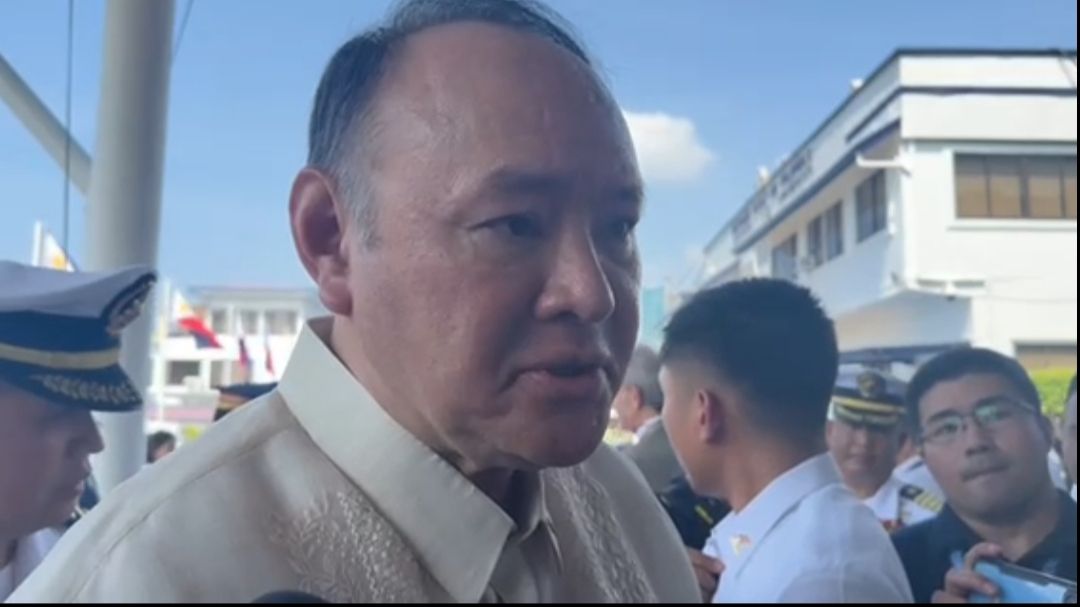Teodoro dismisses China's criticisms on planned missile procurement

China has no right to lecture the Philippines when it comes to improving its deterrent capabilities in the face of the former's increasing aggression in the West Philippine Sea (WPS), Department of National Defense (DND) Sec. Gilberto Teodoro Jr. said on Friday, Nov. 15.
On the sidelines of a Philippine Navy event in Manila, Teodoro confirmed reports that the Philippines is considering to procure additional missile systems to boost the Armed Forces of the Philippines’ (AFP) capability to ward off attacks in the contested areas in the WPS.
He, however, did not confirm nor deny if the reported procurement plan involves the United States mid-range missile system “Typhon”. The DND earlier received the first batch of BrahMos supersonic cruise missile system it bought from India.
“We are planning to have such kinds of capabilities [missile systems]. I'm not saying the Typhon. I'm saying such kinds of capabilities,” Teodoro said.
Expectedly, the expressed interest of the Philippines for the missile procurement irked China.
Chinese Foreign Ministry spokesperson Lin Jian said it was a “provocative and dangerous" move, as well as an “extremely irresponsible choice for both the Philippines and the peoples of Southeast Asia.”
“This region needs peace and prosperity, not missiles and confrontation. China again urges the Philippines to heed the calls of regional countries and peoples, to correct its actions promptly, to withdraw the ‘Typhon’ missile system in line with previous commitments, and to avoid further deviation onto the wrong path,” Lin was quoted as saying in a report by Chinese media outlet Global Times.
But Teodoro said the Philippines "cannot take advice" from parties “who distort the truth.”
“I think the whole world knows who is on the right path and the wrong path,” the defense chief said. “We have the force of international law on our side, not purely Philippine law. China does not have the force of law on its side. It does not have right on its side.”
The Philippines’ claims to WPS is backed by a 2016 tribunal ruling which invalidated China’s dash-line claims in almost the entire South China Sea (SCS).
The planned capability acquisition may be tackled by Teodoro when US Defense Secretary Lloyd Austin III visits the Philippines next week. The defense officials also plan to look into the two countries’ bilateral ties.
“We will have a review of our bilateral cooperation this time. It is once again an opportunity to also lay down some future plans. Anyway, whatever it is, it's on an institutional basis, our bilateral relations. There are mechanisms,” Teodoro said.
Typhon, a strategic mid-range capability system, was deployed to the Philippines for the first time in April for the Salaknib and Balikatan exercises.
The deployment alarmed China as the missile system could cover the entire Luzon Strait up to certain coast of China as well as the People’s Liberation Army (PLA)-Navy bases in the South China Sea.
China called on the Philippines to withdraw the Typhon after the conclusion of the military exercises, but Philippine Army (PA) spokesperson Col. Louie Dema-ala said Manila and Washington decided to retain the weapons system so that the troops could further evaluate it.
In September, AFP chief General Romeo Brawner Jr. said that if it were up to him, he wanted the Typhon system to remain in the country “forever”.
“If I were given the choice, I would like to have the Typhon here in the Philippines forever because we need it for our defense,” he said during the Asian Defense and Security (ADAS) Exhibit at the World Trade Center in Pasay City.